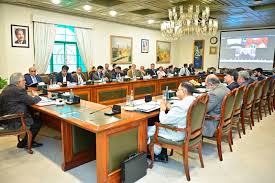Pakistan’s Deputy Prime Minister and Foreign Minister, Senator Ishaq Dar, spearheaded a crucial high-level meeting in Islamabad to recalibrate the nation’s approach toward exporting skilled labor. His central message was clear: Pakistan must urgently revamp its Emigration, Overseas Employment, and TVET (Technical and Vocational Education and Training) strategies to better align with the evolving demands of global labor markets.
At the session, DPM Dar emphasized the imperative to invest meaningfully in high-quality skill development, ensuring that Pakistani workers are ready for emerging sectors rather than oversaturated traditional ones. He suggested that expanding into less-explored industries and geographies promises greater opportunities for employment and more robust remittance streams. After all, skilled labor remittances present a vital pillar for Pakistan’s economic resilience and could deliver broader social and fiscal dividends if employed strategically.
Presentations during the meeting from the Ministry of Overseas Pakistanis and Human Resource Development (OP & HRD) outlined global diaspora trends and highlighted untapped niches sequenced skills, healthcare professions, green tech, digital services, and logistics as ripe for focused training and placement efforts. Officials shared data reflecting a rise in demand from countries seeking mid-level professionals, technical operators, and service workers capable of quickly integrating into new economies.
The forum was attended by senior leadership from multiple key ministries: OP & HRD, Commerce, Health; the Special Assistant to the Prime Minister on Finance, Tariq Bajwa; along with federal secretaries from the Cabinet Division, HRD, and Foreign Affairs, among others, signifying the cross-cutting nature of this initiative.
DPM Dar reiterated the government’s commitment to supporting overseas Pakistanis as a core national objective, reinforcing that welfare, rights protection, and opportunities abroad are integral to sovereign policy not peripheral considerations.
The consensus emerging from the meeting was that reform must be systemic encompassing strengthened vocational training infrastructure, improved international outreach, upskilling with global certification standards, and partnerships with foreign employers and agencies. Beyond remittance growth, the aim is to enhance Pakistan’s global economic footprint by showcasing human capital as a strategic export.
This renewed focus on modernizing labor export policy is seen as part of the broader Uraan Pakistan economic transformation blueprint, which positions human development and export diversification as engines of sustained growth and fiscal stability.
With the facility for implementation now in place, it’s expected that detailed action plans including STEPS for new TVET curricula aligned with overseas jobs, bilateral labor pacts, and diaspora outreach campaigns will roll out in the coming months. The goal: turn Pakistan’s large working population into a structured, high-value workforce capable of contributing meaningfully to global markets while strengthening domestic prosperity.



Comments (0)
No comments yet. Be the first to comment!
Leave a Comment